Your Parents Did A Good Job Raising You If You Already Know These 11 Hygiene Habits
Good hygiene starts at home, and it shows.
 Studio Romantic / Shutterstock
Studio Romantic / Shutterstock Many of us owe our earliest lessons about cleanliness to the parents or guardians who taught us that good hygiene is one of the most important foundations of a healthy life. From flossing before brushing to changing our linens weekly, these routines not only keep us healthy but also show how we present ourselves to the world.
While some habits seem obvious as adults, others took years of consistent reminders from the people who raised us. If you already practice these hygienic habits without thinking twice, then your parents did a good job raising you, as you were taught well from a young age. These habits reflect a strong upbringing rooted in personal responsibility and a prioritization of self-care.
Your parents did a good job raising you if you already know these 11 hygiene habits
1. Using a separate towel for your face
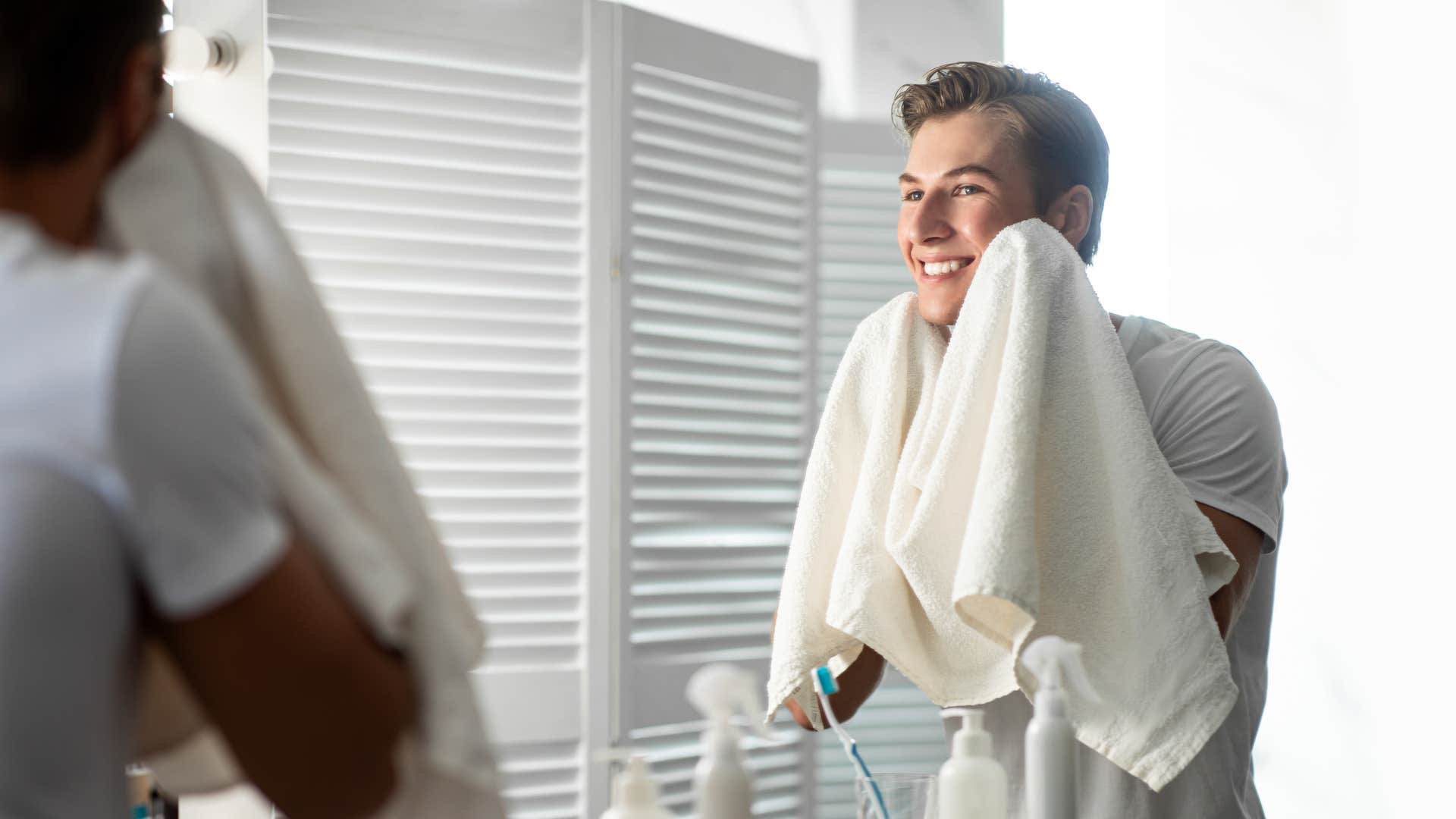 Prostock-studio | Shutterstock
Prostock-studio | Shutterstock
Using a separate towel to clean your face is a simple yet effective hygiene habit that many overlook. Your face is more sensitive and prone to bacterial buildup than other parts of your body, so keeping it clean requires extra care. When you use the same towel that you used for your body, you risk transferring dirt, oils, and germs, which can lead to breakouts.
A lone face towel helps maintain clearer skin by minimizing the chance of bacterial contamination. Since towels stay damp for long periods of time, they can become cesspools for microbes if not changed or washed frequently. By having a separate towel just for your face, you can help your skin's health. Your parents probably taught you this around the time when blemishes became a big deal for you.
2. Shaving with conditioner instead of shaving cream
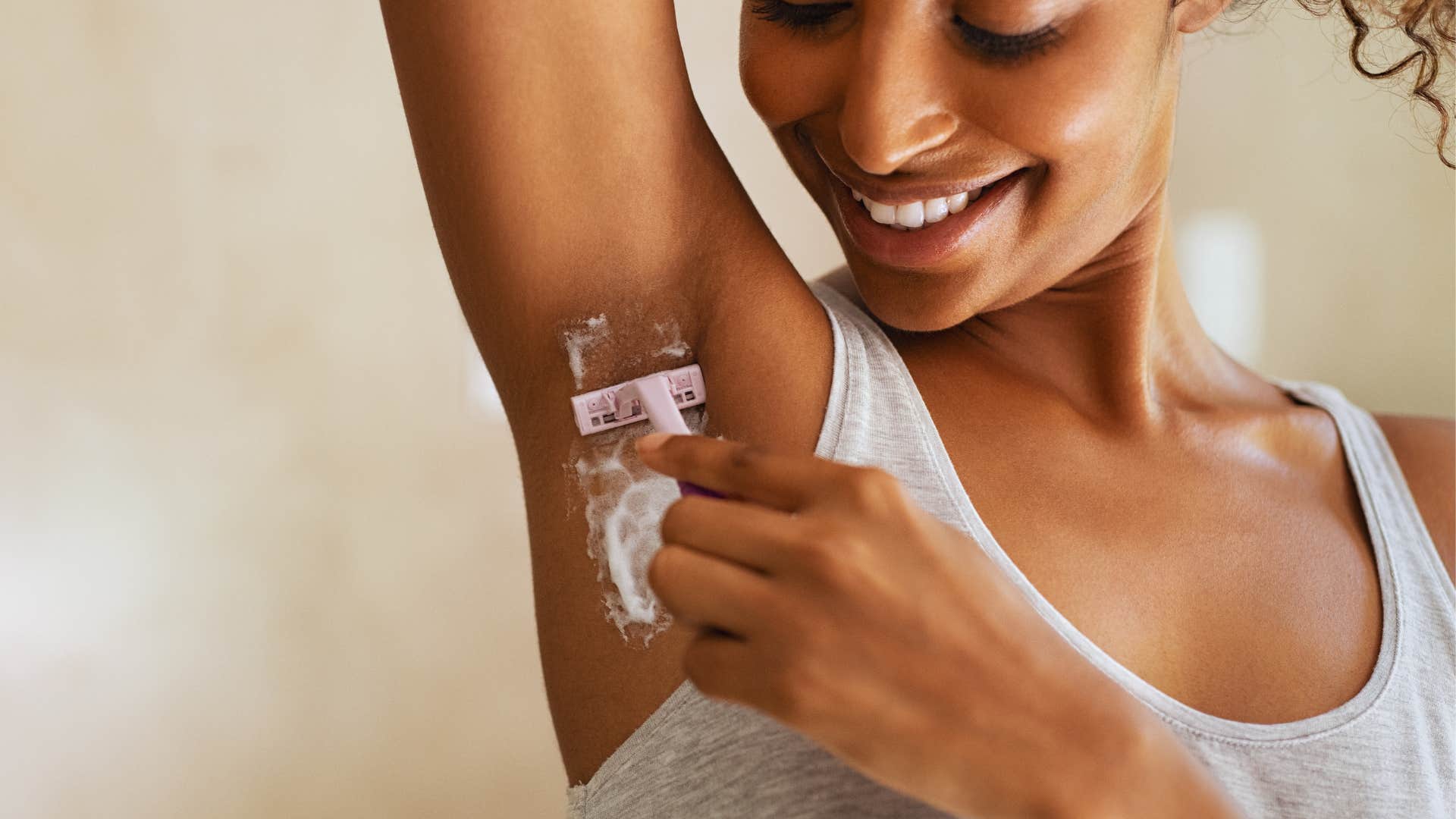 Rido via Canva
Rido via Canva
It might seem like a strange move to use conditioner as a replacement for shaving cream, but conditioner softens the hair follicles and moisturizes your skin at the same time. This makes it easier for the razor to glide smoothly without causing as much irritation as shaving cream would. This can also be a helpful alternative for those who have sensitive or dry skin.
Another benefit of using a conditioner is its convenience. Since many people already have it as part of their shower routine, it eliminates the need to buy a separate product. Many who try this method report softer skin afterward. Making conditioner a smart and simple swap for anyone looking to upgrade their shaving routine.
3. Switching to silk pillow cases
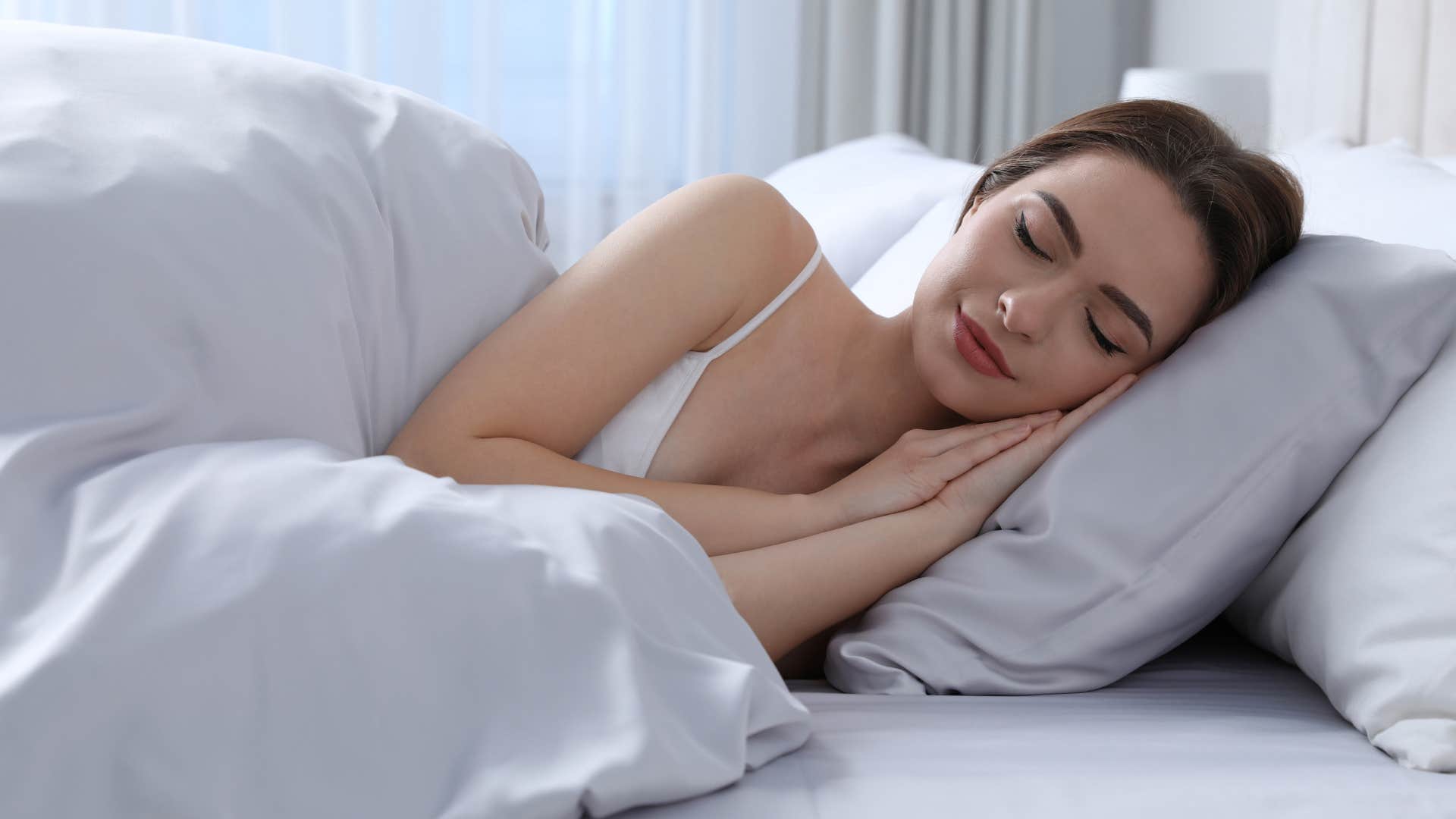 New Africa | Shutterstock
New Africa | Shutterstock
Unlike cotton, silk creates less friction against your skin and hair. This can reduce frizz and wrinkles as time goes on. This small change in bedding can make a huge difference in how you look and feel when you wake up every morning. Waking up with smoother hair and less pillow crease on your face is just a sign that you're caring for yourself.
Beyond beauty benefits, silk fabric can be resistant to dust mites, which makes it the perfect choice for anyone who suffers from allergies. It can also repel common irritants like mold and pet dander. For those with seasonal allergies, this can mean a more restful sleep and fewer morning sniffles.
4. Flossing before brushing your teeth
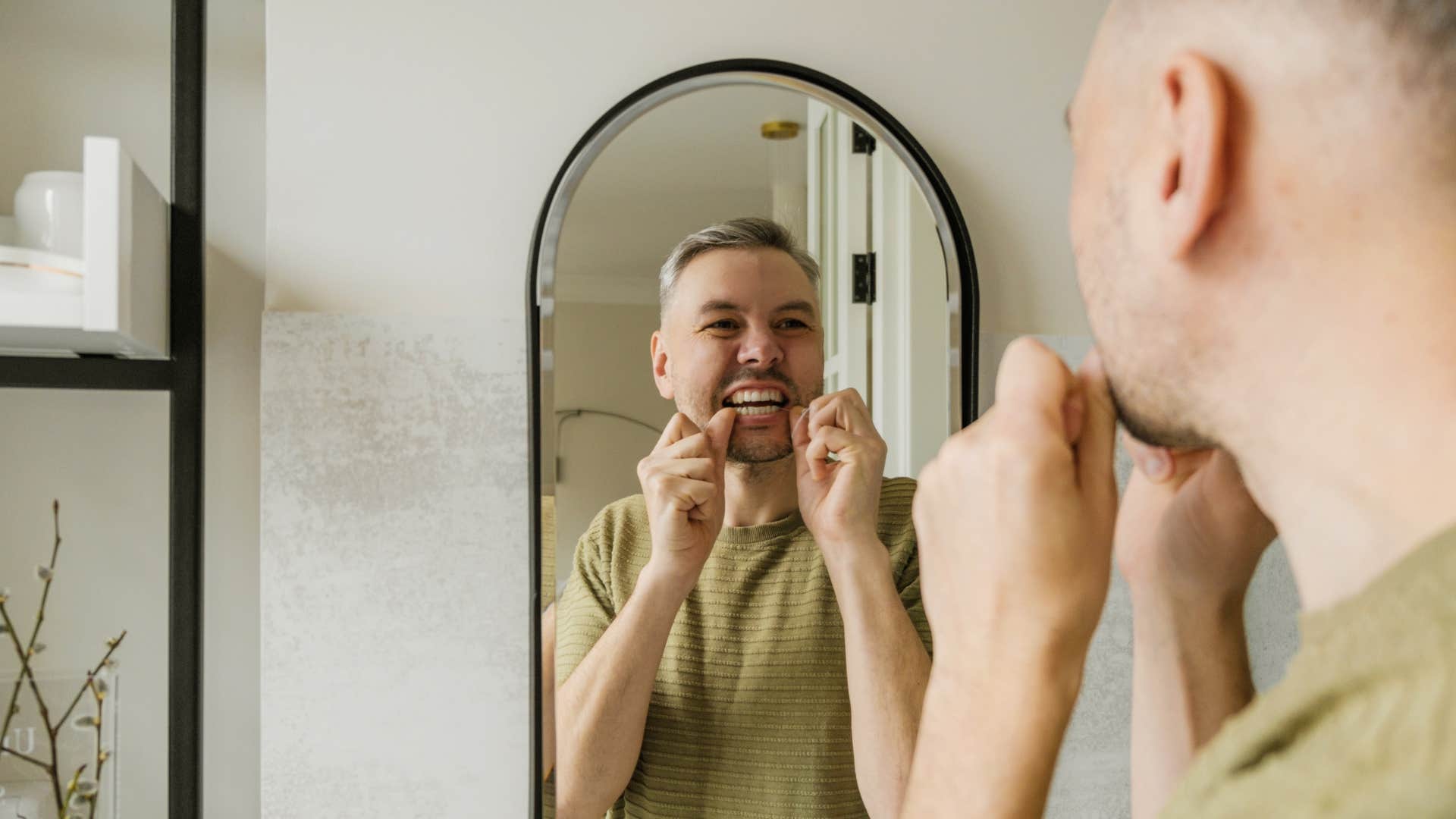 Miridda | Shutterstock
Miridda | Shutterstock
Flossing beforehand ensures that once the plaque is loosened then the brushing can easily sweep it away more effectively. A study published in the Clinical Oral Investigations found that combining flossing with tooth brushing significantly reduced gingival inflammation compared to brushing alone. It's a simple adjustment that can optimize your entire dental routine and boost the longevity of your gum health.
Your parents probably taught you that a small routine like flossing can prevent you from getting cavities and gum disease. Others didn't listen to this advice like you did, and now, as an adult, you notice the difference in the state of their teeth. Adopting smart hygiene habits like this shows that you take the extra couple of seconds to remember what your parents taught you.
5. Cleaning your phone screen daily
 fizkes | Shutterstock
fizkes | Shutterstock
Your phone is one of the dirtiest items you touch every single day. We carry it everywhere and transport the germs from other things that we've been touching all day to it. Even though we do this, many people will rarely take the time to sanitize their phones, let alone clean just the screen itself. A study published by Scientific Reports found that 92% of university students acknowledged the necessity of cleaning their phones, with only 12% of them admitting to cleaning their phones daily.
Using a microfiber cloth with a bit of rubbing alcohol or a disinfectant wipe can remove the most harmful bacteria without damaging the screen. This not only keeps your phone looking pristine, but it also protects your immune system from unnecessary exposure. If you already clean your phone, then that shows just how mindful you are of your health and surroundings.
6. Wearing cotton clothes rather than synthetic
 stockfour | Shutterstock
stockfour | Shutterstock
Synthetic fabrics like polyester or nylon look sleek but also trap heat and moisture against the skin. This creates an ideal environment for bacteria and fungi to thrive, which can contribute to skin irritation and acne. People with skin conditions find that natural fibers like cotton help them with their discomfort.
This is because cotton is hypoallergenic and less likely to cause allergic reactions compared to synthetic fabrics. A study published in the American Journal of Clinical Dermatology found that people who suffer from conditions like dermatitis or eczema should switch to cotton fabrics to minimize flare-ups. Choosing cotton clothing is a great way to not only feel comfortable but also feel healthy.
7. Scraping your tongue
 Monkey Business Images | Shutterstock
Monkey Business Images | Shutterstock
The tongue can harbor just as many bacteria, food particles, and dead cells as teeth can. Using a tongue scraper to brush your tongue can actually help you maintain good dental health. Research has found that cleaning your tongue with a toothbrush or tongue scraper reduces levels of volatile sulfur compounds that contribute to bad breath.
These small actions show just who was being attentive to their dental hygiene as children and who wasn't. If your parents emphasized the importance of a nice smile and healthy mouth, then you probably do this as part of your daily and nightly routine. Some people notice an immediate improvement in their breath and even in their sense of taste after adding this step to their routine.
8. Changing your pillowcases and sheets weekly
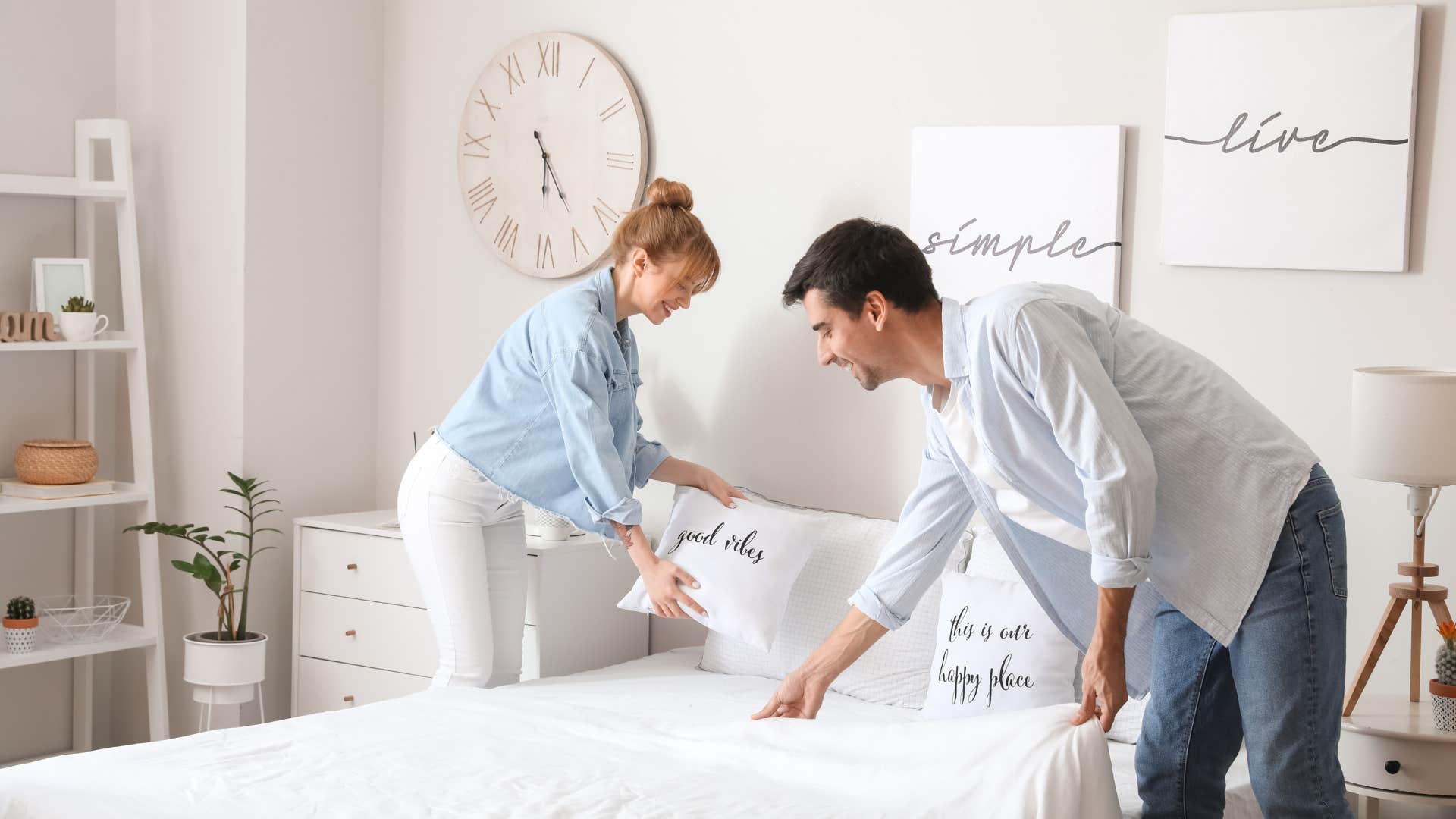 Pixel-Shot | Shutterstock
Pixel-Shot | Shutterstock
Climbing into fresh sheets can feel calming and refreshing. It's not just a chore but an essential hygiene habit that your parents should have taught you when you were younger. As we sleep, our bodies shed skin cells, sweat, and natural oils that get all over our sheets and pillowcases. This is why we should be changing sheets more frequently than we currently do.
According to a survey by Sleep Advisor, the average person in the U.S. changes sheets roughly every 24 days, with men waiting 10 days longer than women. If not washed regularly, things like dirt and oils go back into your skin, which can clog your pores. It's also about getting a restful night's sleep. Keeping your bedding clean will improve your sleep quality. Who doesn't love to fall asleep in warm sheets straight out of the dryer?
9. Washing your hands before touching your face
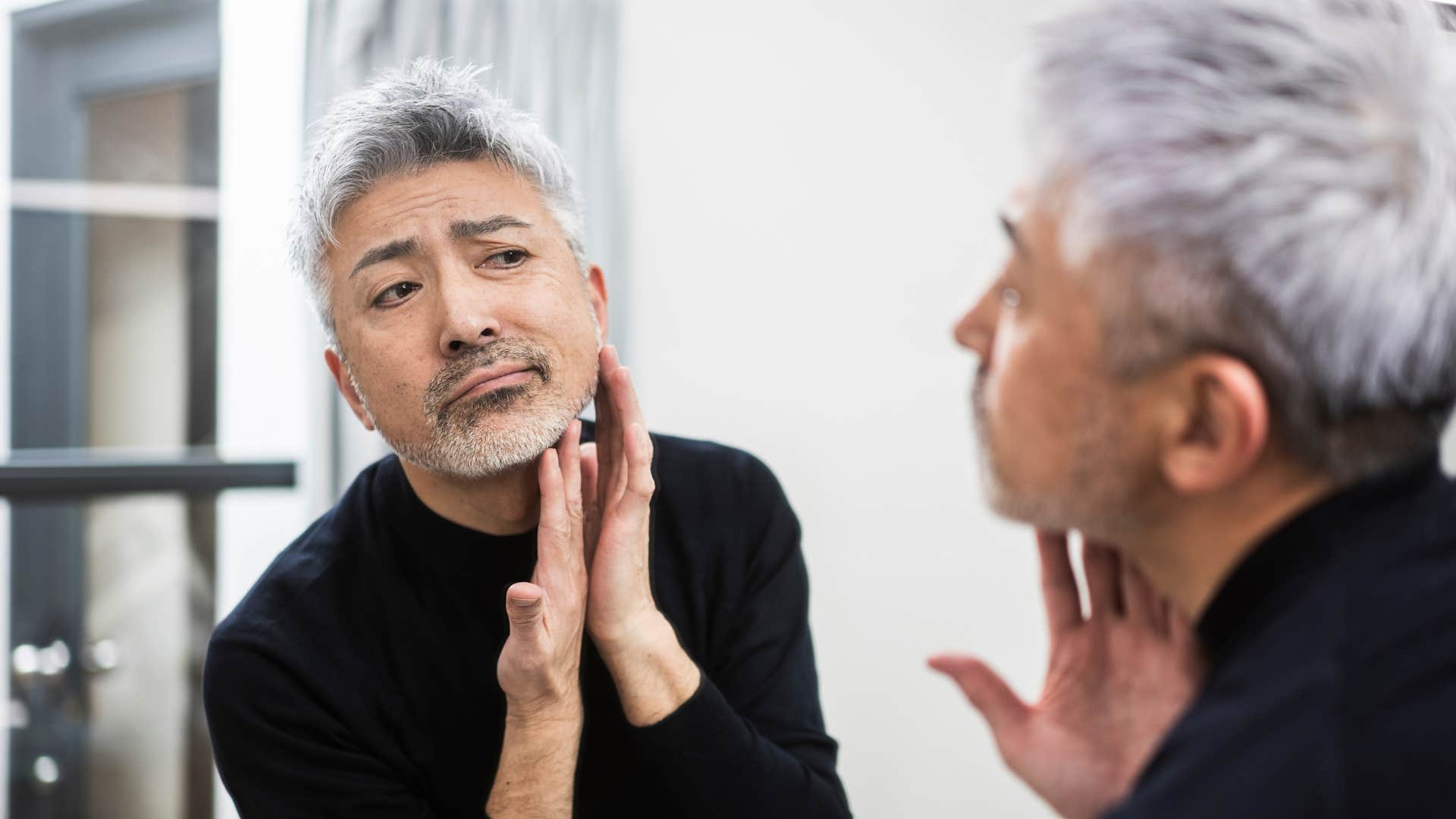 lielos_photograph | Shutterstock
lielos_photograph | Shutterstock
Our hands come into contact with countless surfaces throughout the day, and each of these can carry germs. When you touch your face, you're giving those pathogens a direct path into your body. According to a study in the Antimicrobial Resistance & Infection Control, good hand hygiene can break the cycle of infection transmission, particularly where face-touching is prevalent.
The simple act of washing your hands can reduce your risk of infections like the common cold, flu, or even more serious illnesses. Using soap and water can remove dirt and microbes, while alcohol-based sanitizers can be a good alternative when on the go. The key thing here is to be consistent. Wash your hands before preparing a meal or eating one.
10. Cleaning the jewelry and accessories you wear weekly
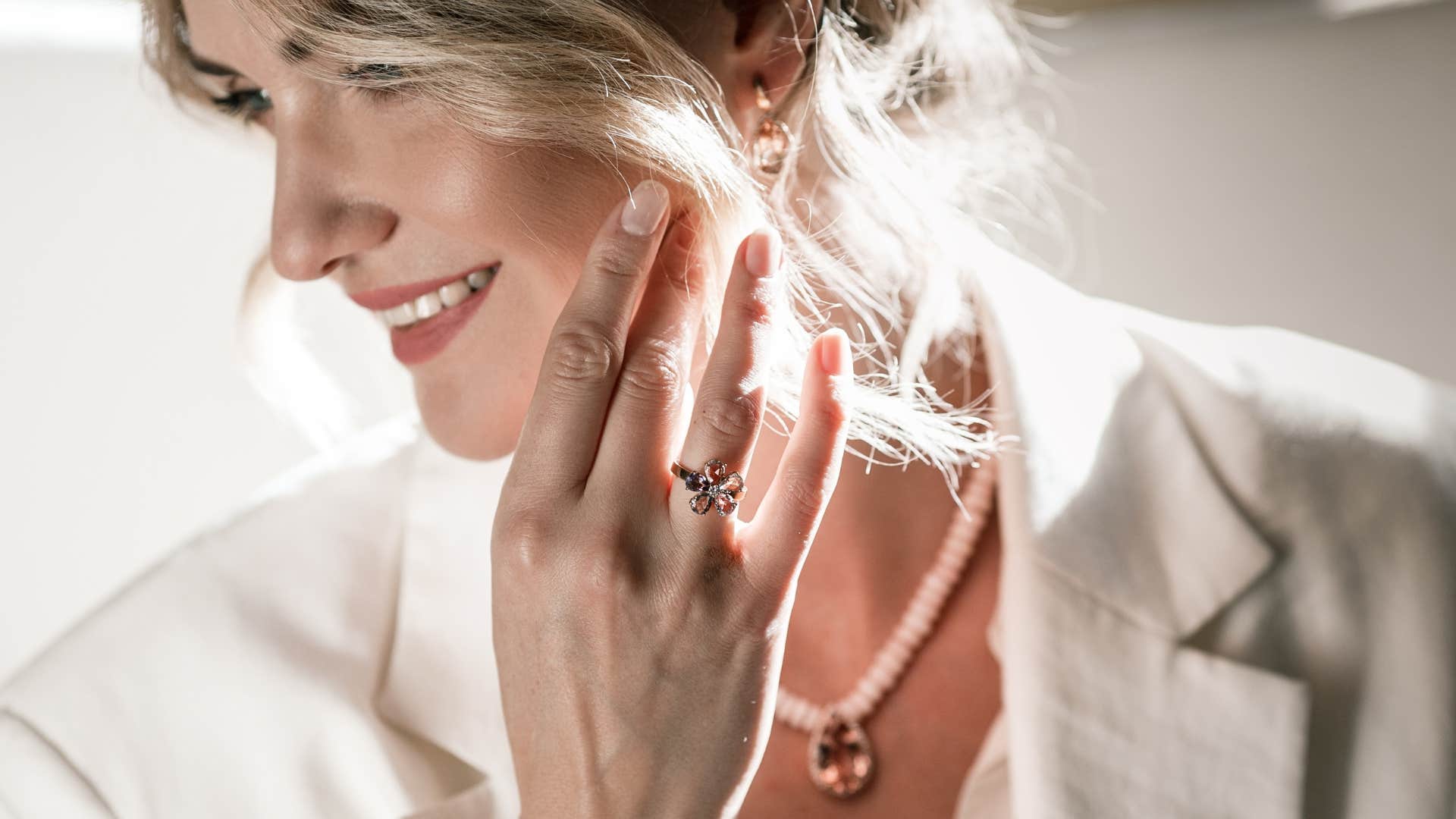 Maria Svetlychnaja | Shutterstock
Maria Svetlychnaja | Shutterstock
Many people remember to wash their hands and face regularly, but forget to clean the accessories like jewelry that they wear. A study published by the National Library of Medicine found that people who wear wristwatches or rings had higher skin bacterial counts compared to those without hand jewelry. Since these pieces are often in close contact with your skin when you don't clean them, they can lead to skin irritation or, in worst-case scenarios, infections.
Cleaning the accessories that you wear weekly is an important hygiene habit to have. A gentle soak in warm, soapy water followed by a soft brush to remove dirt and buildup can make your stuff look brand new. Leather bands and fabric accessories may require special care, but even simply wiping them down helps prevent the accumulation of grime.
11. Covering your mouth when coughing or sneezing
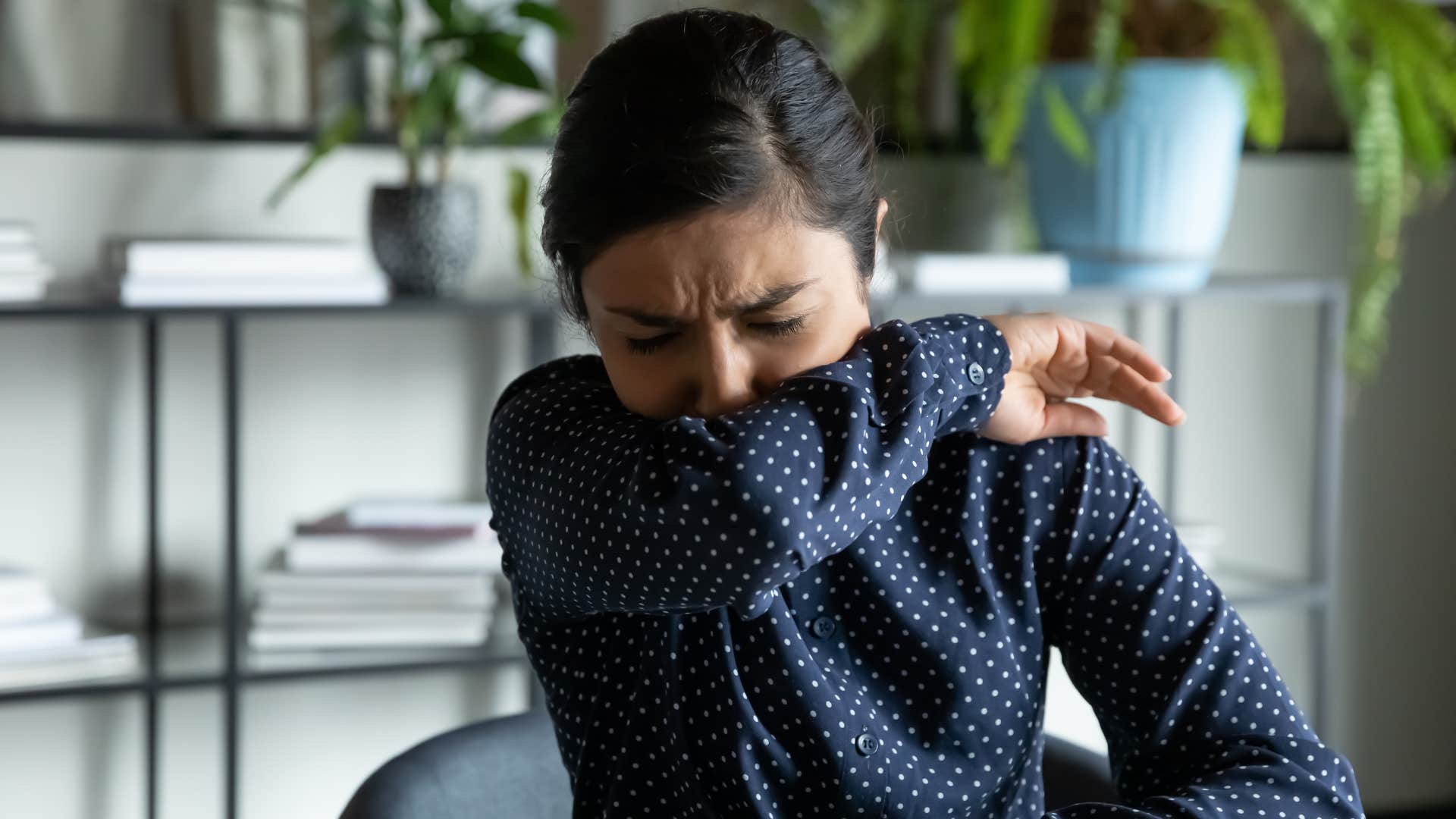 fizkes | Shutterstock
fizkes | Shutterstock
Covering your mouth when you cough or sneeze is a universal precaution that we were all taught by our parents. It was taught in different forms, but the main objective was to teach us that germs spread quickly, so in order to protect others, the best thing we can do is cover our faces when it happens. We do this to protect those who are most vulnerable, like young children, the elderly, and those with weakened immune systems.
Parents who teach this habit early are helping their children become more responsible and respectful members of society. According to the American Journal of Infection Control, 53.3% of students used their hands to cover coughs or sneezes, and 23.5% did not cover at all. While less than one-quarter used their elbow to sneeze. If a tissue isn’t available, then the next best thing is your elbow. Using your hands will just transfer the germs to whatever you touch next, even if it’s for hand sanitizer.
Sylvia Ojeda is an author who has over a decade of experience writing novels and screenplays. She covers self-help, relationships, culture, and human interest topics.

